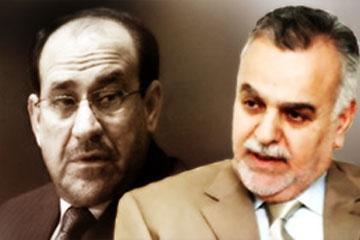
The crisis in Iraq centering around terrorism charges brought against the Vice President Tariq al-Hashimi reflects the distorted balance of power that has emerged since the American withdrawal. Prime Minister Nouri al-Maliki believes his influence and importance carries greater weight as the U.S. will now be more reliant on him. He believed he could use this opportunistic space to get rid of his political opponents without infuriating the Americans or the Iranians. By ridding himself of his opponents, primarily from the Iraqi List led by al-Hashimi and Dr. Iyad Allawi, who beat Al-Maliki in previous elections, he thought he could attain political gains at home. Thus, the only way for al-Maliki to guarantee staying in office as prime minister would be to destroy the Iraqi List's cohesion and leadership, and their control over the security services.
But Iraqi parties have different agendas. The Iraqi List, for their part, moved from a position of reaction to action. They transferred the battle to al-Maliki's coalition by offering his opponents a settlement that would, in seeing them abandon al-Maliki, ensure that they remain ascendant in the government. The List also pressured al-Maliki by leveraging the support of the disgruntled Kurds. The Kurds' actions could be considered expedient as their interests are mainly limited to obtaining concessions from Baghdad as relates to their region, and they do not consider overthrowing the al-Maliki's leadership as a priority.
International powers, especially the U.S. and Iran, agree that the crisis must be contained and prevented from spiraling out of control and threatening everyone's interests. Those players are currently pushing for a settlement that would maintain the existing balance of power, and it seems they are not willing to let al-Maliki's ambitions spoil the precarious balance of power in Iraq.